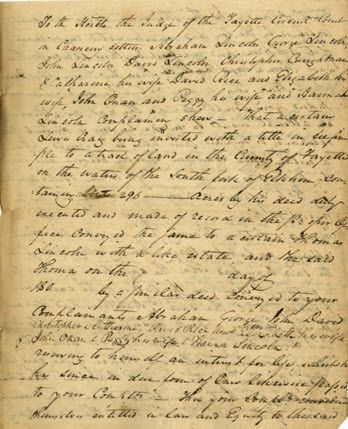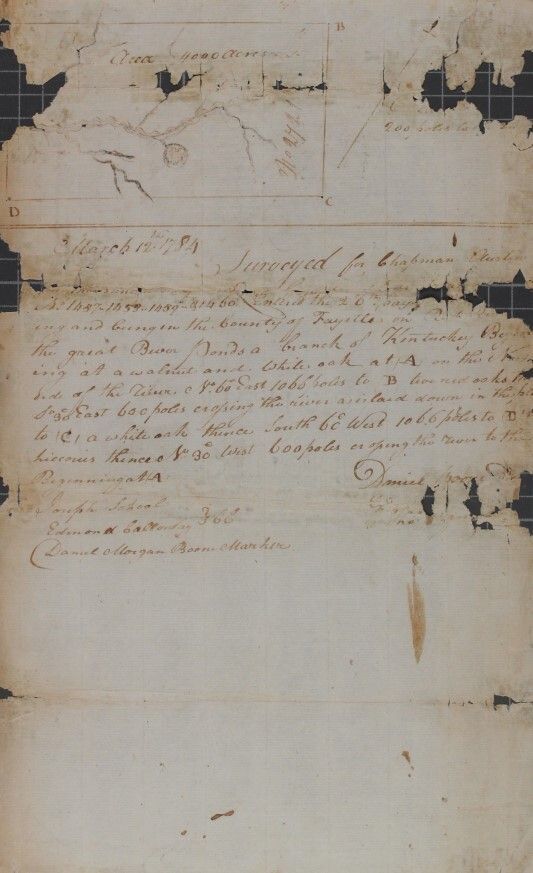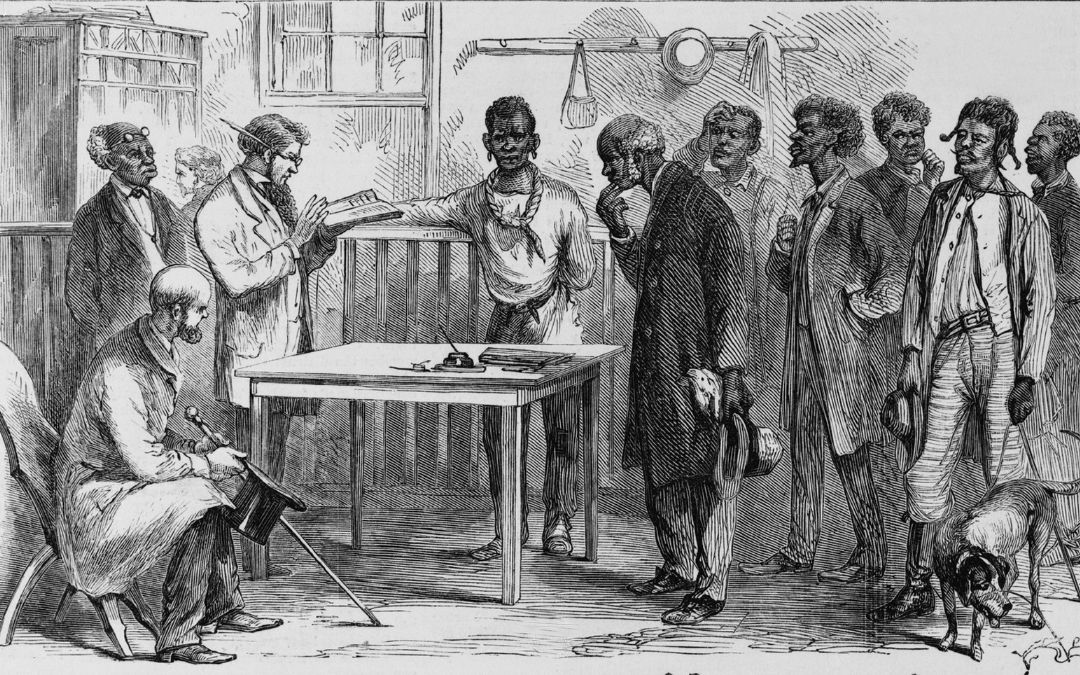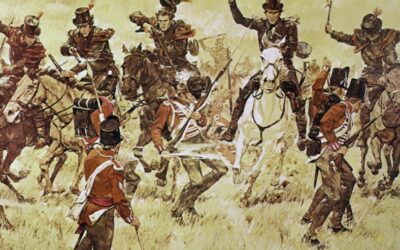Goodies at the Kentucky Archives
The Kentucky Department for Libraries and Archives (KDLA) is home to over 110,000 cubic feet of state, judicial, and local records, dating as far back as pre-statehood. These records include original documents from court cases, tax books, marriages, divorces, wills, various land records such as deeds, grants, patents, surveys, vital records registering births and deaths, and many other materials from Kentucky’s state agencies. Featured here are some highlights of what can be found within these collections.
Unexpected Find 1: WPA Historical Records Survey
The Works Progress Administration (WPA) was one of many Great Depression-era relief programs put into effect under the Roosevelt Administration. Instituted to put unemployed Americans to work, the program oversaw the construction of significant pieces of American infrastructure. Beyond these building initiatives, the WPA also employed creative people to document and celebrate America’s heritage. An example especially important to the genealogist was the Historical Records Survey.
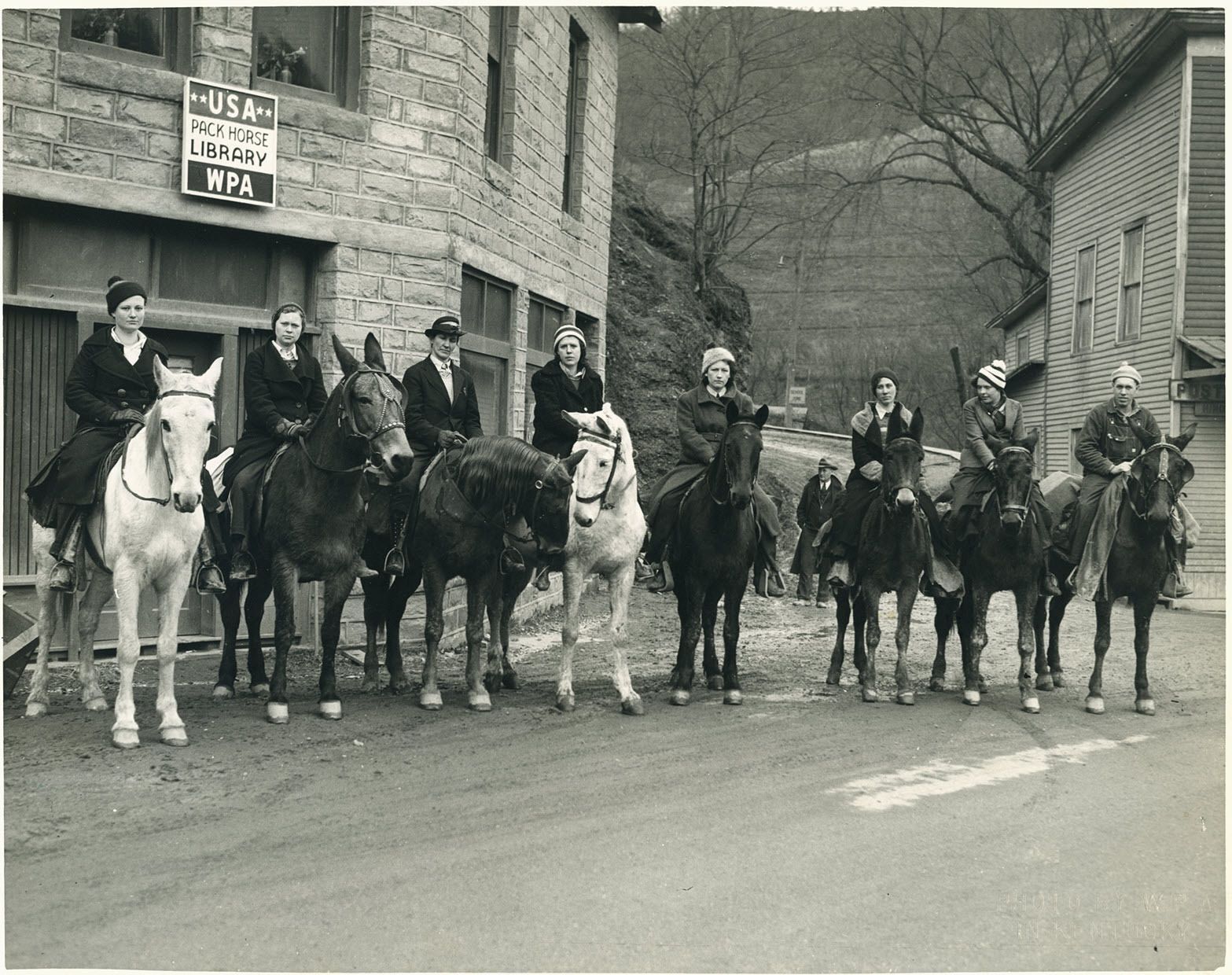
Packhorse Librarians, Photo Album 001. Works Projects Administration
The Historical Records Survey identified, collected, and preserved historical records across the country. By visiting the courthouses, archives, historical societies, town halls, vital statistics offices, public libraries, and university libraries, WPA employees compiled inventories of state and county records, manuscript collections, newspapers, and archives.
They followed this inventory by creating indexes to many collections and sometimes even transcriptions. It is thanks to their efforts that we can take advantage of indexes to records like the census, vital records, naturalizations, newspapers, and courthouse record inventories.
The documentation created by the WPA is part of the collections at KDLA today, where you can find the Historical Records Survey as a small part of the records preserving the work conducted by the agency across Kentucky.
Another example of that work in Kentucky was the Pack Horse Library Project. One of the unique projects administered by the WPA, the initiative distributed reading material deep in Appalachia. Besides this photo, you can find many other photos collected from the project online at the Kentucky State Digital Archives.
Unexpected Find 2: Civil/Criminal Court Cases
Court records can provide the genealogist with a wealth of information about their family members’ past. Most times, they may be the only source with insight into the character of an individual or may serve as the sole record showing familial relationships. Whether an ancestor was tried criminally or involved in a legal disagreement in a civil case, the records created in the trial’s course capture details rarely reflected in other sources.
Examples can include depositions from family or neighbors, original deeds, wills, plaintiff’s complaint, defendant’s answer, trial transcripts, motions, court orders, verdict, or judgment, and even material entered as evidence.
This Civil Case from Fayette County Circuit Court included various statements from the plaintiffs and defendants including Abraham Lincoln. Abraham Lincoln was among the plaintiffs and among these case files you’ll find his deposition detailing his perspective on the events surrounding the case.
Read the case file in its entirety at the Kentucky State Digital Archives.
Unexpected Find 3: Prison Records
During your research, you may discover that your family hasn’t always enjoyed the sterling reputation it has at present. For anyone that makes such a discovery or suspects a more sordid past in their family tree, they may need to delve into the records of Kentucky’s correctional institutions. Prison records can offer a great deal of information about an individual.
They often include administration files documenting an inmate’s admission and release, reports noting behavior, medical records, accounting ledgers that offer insight into an inmate’s earnings and spending, and more. Together with any case files, prison records can help the researcher get a fuller picture of their ancestor.
This Prison Register for the Kentucky State Penitentiary notes such details as the individual’s crime, their county of residence, date received, age, education, occupation, height, and weight.
On this page of the register, you can find Monteville Hatfield charged with murder and sentenced to life. This is one example of the number of Hatfields you might find in these registries from their actions during the Hatfield and McCoy feud.
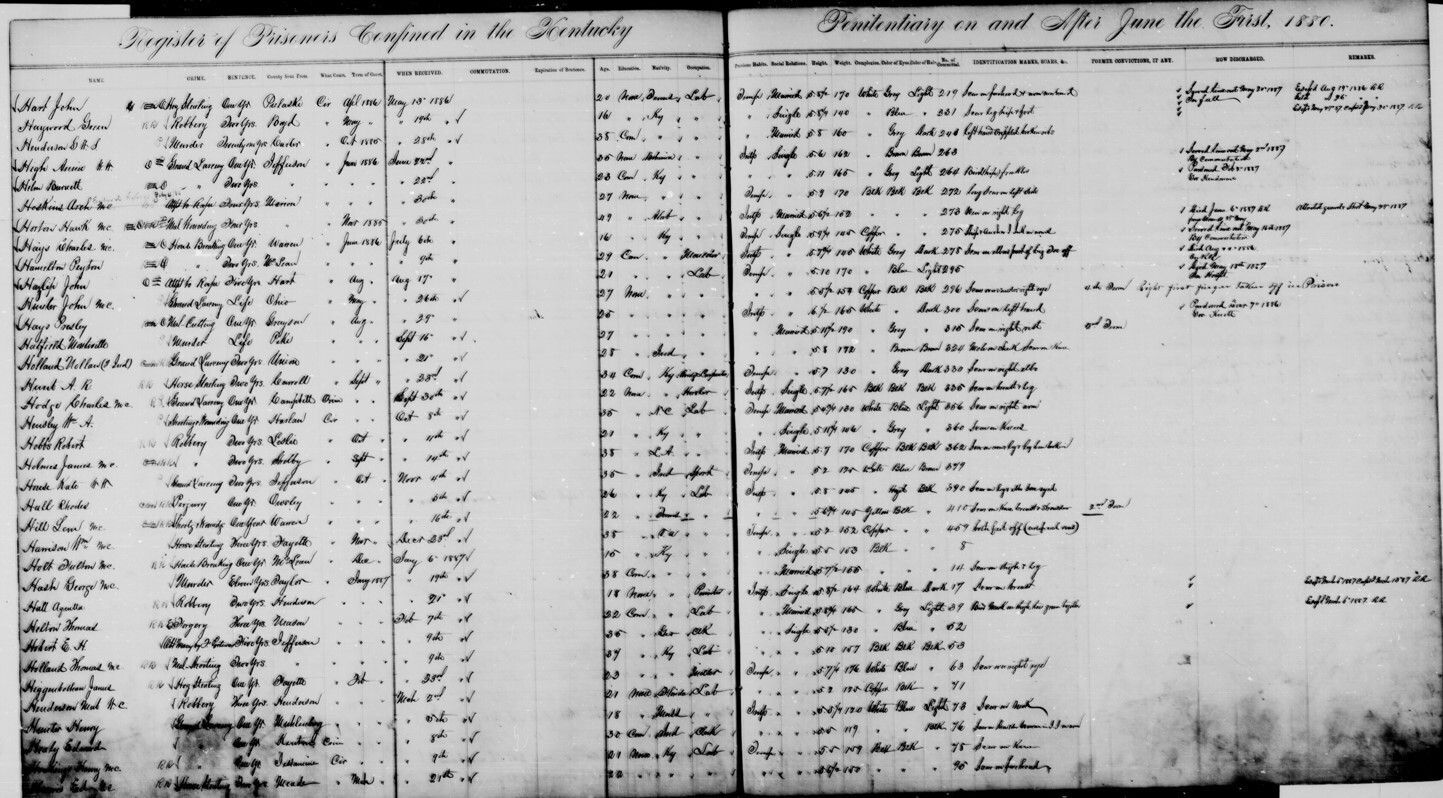
Kentucky State Penitentiary Register, 1886. Kentucky Department of Corrections. Available at the KDLA Research Room.
Unexpected Find 4: Land Records
Emigration into Kentucky by European and colonial Americans began in the 1700s, though official documentation and sponsorship of such settlement would not begin until the 1770s. The subsequent land warrants, certificates, surveys, plats, patents, and grants issued to the first generation of Kentuckians serve as valuable resources to the genealogist tracking their origins in the region.
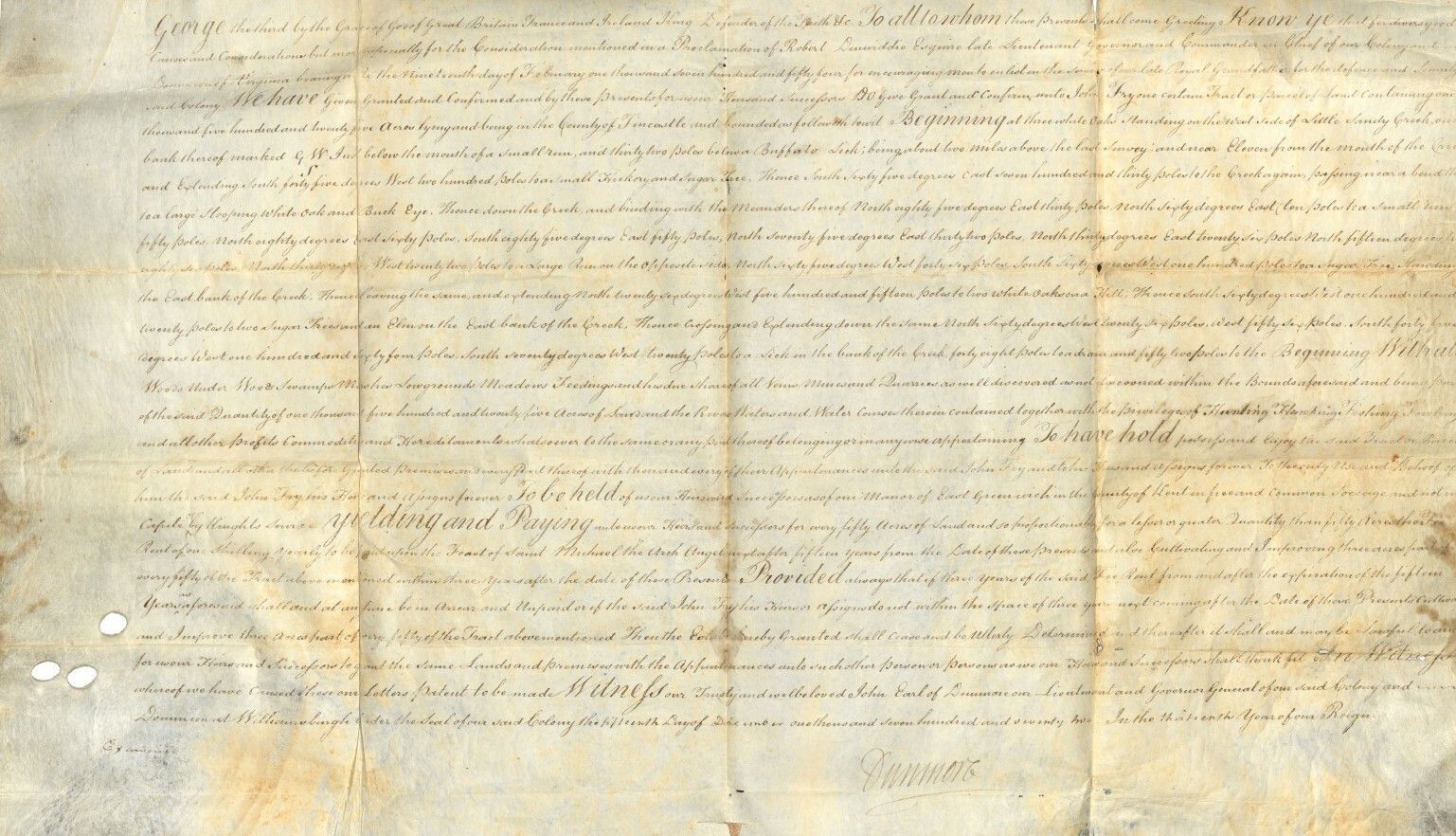
Lord Dunmore Land Grant. December 15, 1772. Fleming County Circuit Court, Kentucky evidence,1818.
Among the land records available at KDLA are grants like this one from 1772. Some of the first grants awarded were signed by the Royal Governor of Virginia, Lord Dunmore. Check out the grant in its entirety online here.
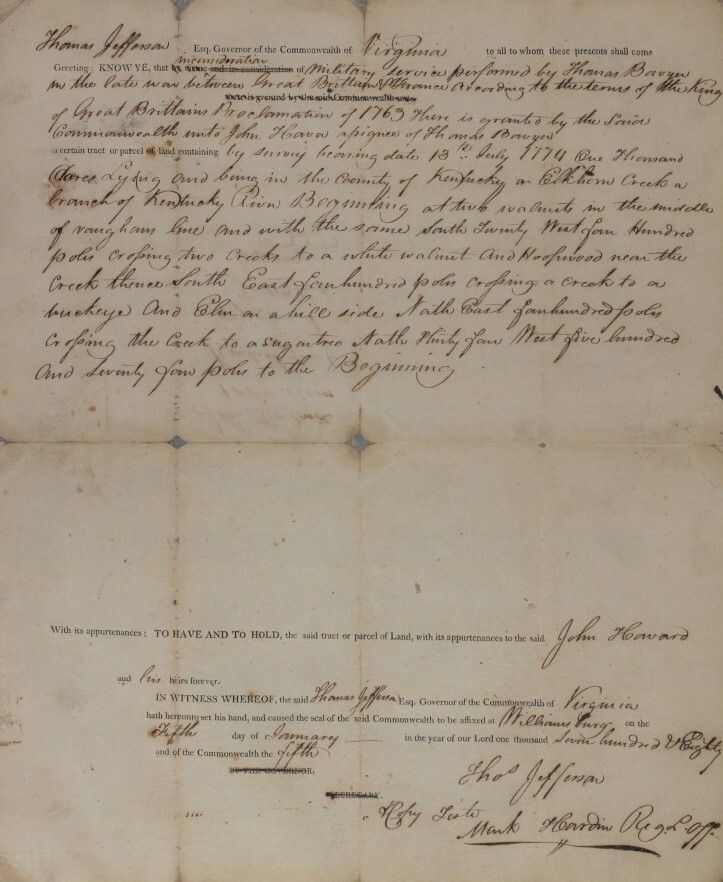
Land Grant Signed by Gov. Thomas Jefferson. 1780. Kentucky Secretary of State Office.
A slightly later example, from 1780, still includes the signature of the Governor of Virginia, which in this case was Thomas Jefferson. This document is also available online on the Kentucky State Digital Archives.
Surveys are also among the land records available at KDLA. This survey, completed by Daniel Boone in 1784 is one example among a series available online on the Kentucky State Digital Archives.
Unexpected Find 5: Governor’s Records
Fifty-nine individuals have served in the office of governor in Kentucky. For everyone, and each term served, they’ve generated records documenting their actions while in office. These include correspondence, enrolled bills, and executive journals that record the official actions of the governor. You can often find information about the appointment of state and local officials, apprehension of fugitives, pardons, and remissions, among much more. While rarely considered by the genealogist, these records can prove a unique discovery for a family whose member was pardoned or perhaps appointed a Kentucky colonel.
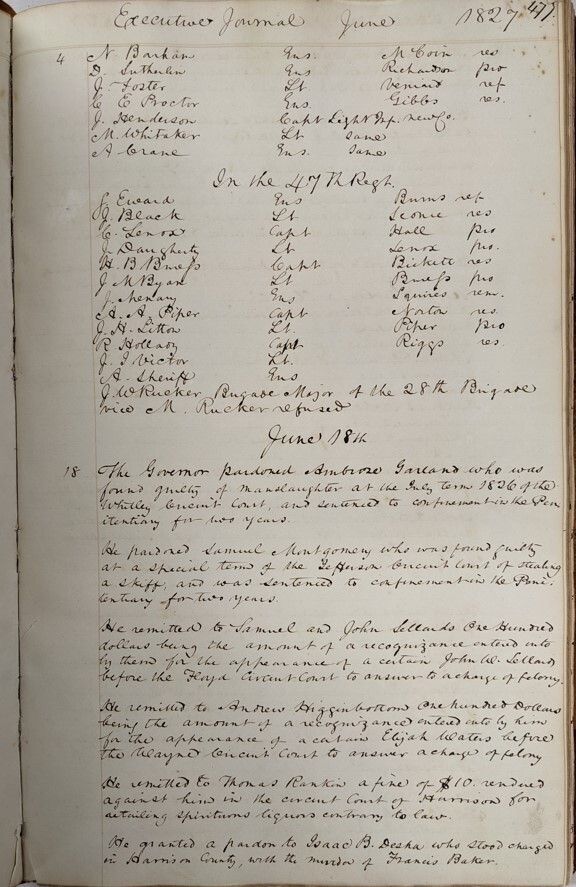
Governor Joseph Desha Executive Journal, page 477. 1827. Isaac Desha Pardon.
Governor Joseph Desha’s records provide a fascinating example of these records with this pardon of his son Isaac Desha, issued in 1827. Isaac stood accused of murder and was awaiting a third trial after being convicted in the first two, which had both been dismissed under controversial circumstances.
Isaac would attempt suicide while awaiting the trial, but survived by cutting his own throat when doctors used a silver pipe to repair the damage. He recovered and found himself a free man. He would depart Kentucky shortly after and travel to Texas, where he would again face trial for murder before his death from disease.
You can access many executive journals online through the Kentucky State Digital Archives, or you can visit us in the Research Room at KDLA to access them in person.
You are Invited to Visit the Kentucky Archives
These are just some highlights of the interesting discoveries awaiting to be made in the collections of the Kentucky State Archives. What might they include in your family? Pay us a visit to find out!
Editor’s Notes
Visit the KDLA digital archive for more unexpected finds. You can also request the help of an archivist and even get a copy of a record for an affordable fee.
Rusty Heckaman joined KDLA as the Research Room Supervisor in September 2021. He’s eager to learn all about Kentucky’s unique history and hopes to do so through the stories and research of KDLA’s patrons. Originally from Indiana, Rusty moved to Kentucky after residing in Texas for the last 9 years. As opposed to GTT (Gone to Texas), he is BFT (Back from Texas). A graduate of Indiana University he is a career archivist with a passion for access to the records his profession so diligently preserves.

